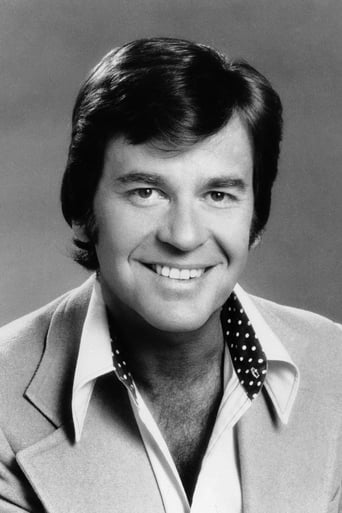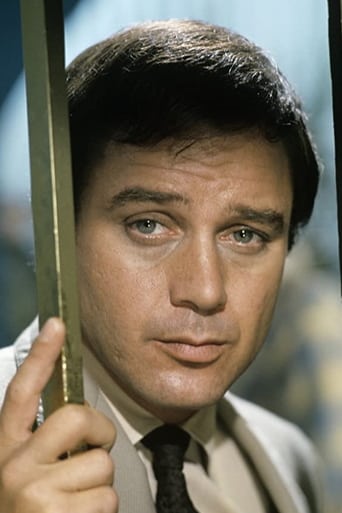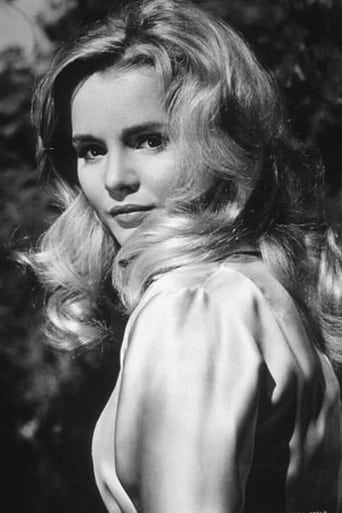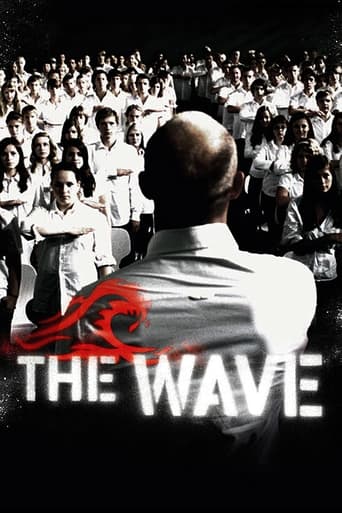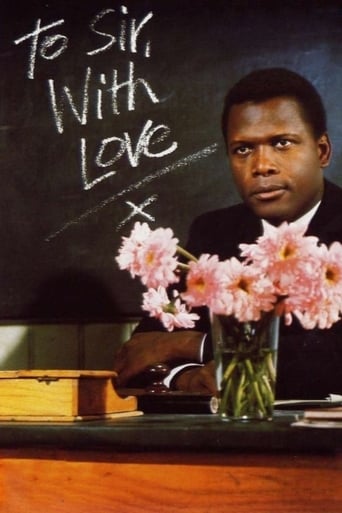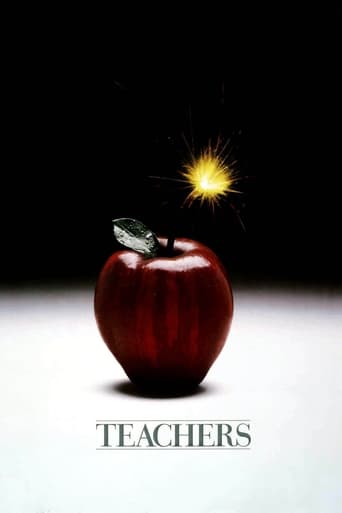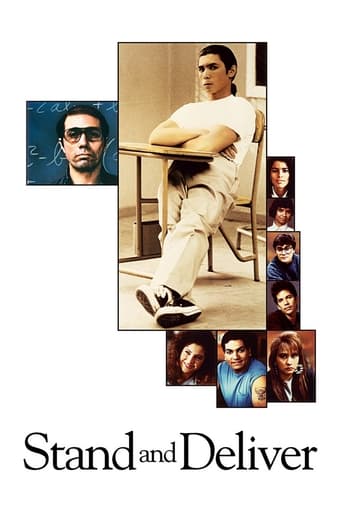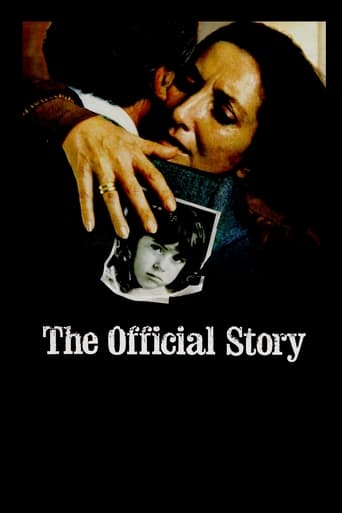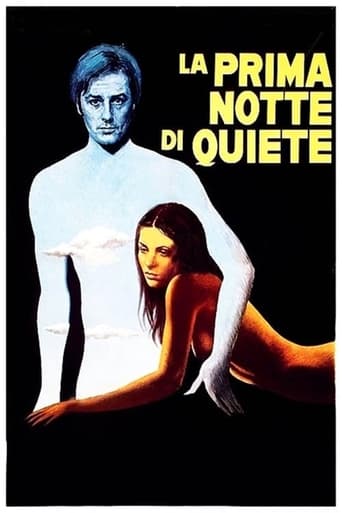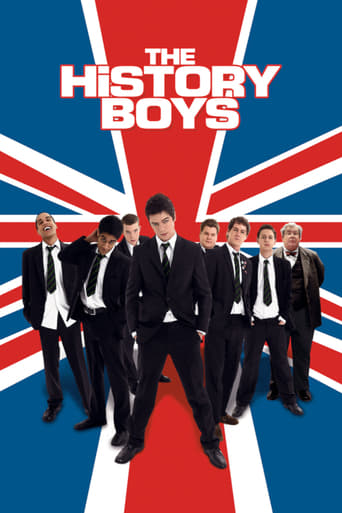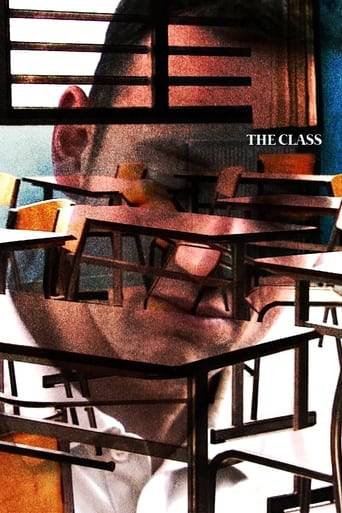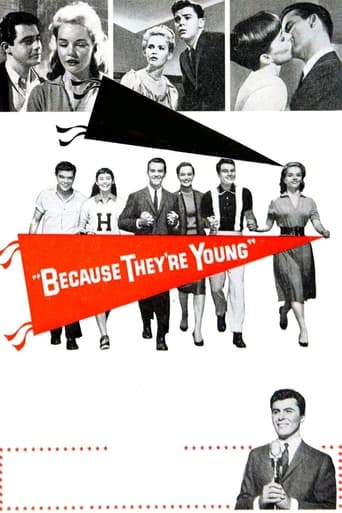
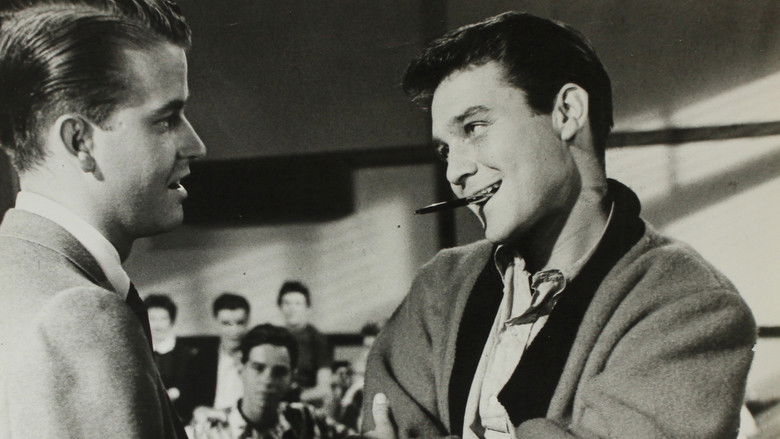
Because They're Young (1960)
Director Paul Wendkos' 1960 film adaptation of the controversial novel "Harrison High", about an idealistic young high-school teacher dealing with over-sexed and troubled teenagers, is notable for its casting of newcomer Dick Clark in the starring role. Others in the cast include Tuesday Weld, Michael Callan, Victoria Shaw, Roberta Shore, Warren Berlinger, Doug McClure, Linda Watkins, Rudy Bond, Philip Coolidge, Stephen Talbot, Kathryn Card, James Darren, Duane Eddy, The Rebels and Bess Flowers.
Watch Trailer
Cast
Similar titles
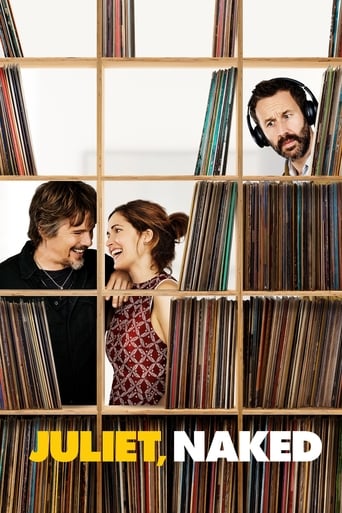
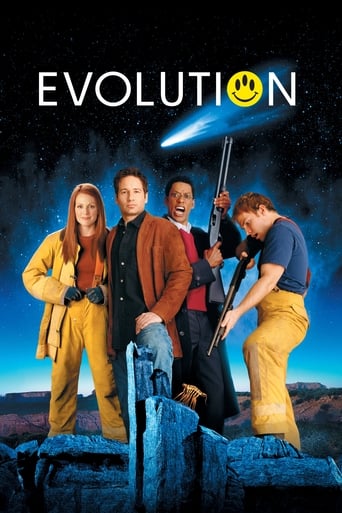
Reviews
Thanks for the memories!
Just what I expected
It is not deep, but it is fun to watch. It does have a bit more of an edge to it than other similar films.
The acting in this movie is really good.
I'm not sure what the producers were aiming for here. On the face of it, it would seem a Dick Clark showcase, taking his TV fame and segueing to movies. But the cast is much too large and the storyline too sprawling to showcase one individual. As a dedicated teacher, Clark keeps his TV role as shepherd of struggling teens, and despite his thoroughly white-bread presence, does pretty well in the acting department. Anyway, as a teen angst film, the film's okay; as a juvenile delinquency movie, it lacks bite until the end; as a R&R showcase (Duane Eddy, et.al.), it's lame and tame with only two bland selections. What it does have that's noteworthy is the gay context surrounding the older man, Chris. It's subtle, but pretty daring for 1960 and especially for a film introducing Clark. (Thanks reviewer fordraff for your extended discussion.) Taken as a whole, however, the movie's too sprawling with too many sub-texts to achieve anything like focused impact. And except for cult figure Tuesday Weld, the array of featured youngsters has largely faded into obscurity. But not Clark, who went on to a stellar TV and producing career.
Dick Clark strays too far from the Bandstand in this misguided youth flick, which is one-half benign high school opus and the other half a "Rebel Without a Cause"-type drama. Based on John Farris' novel "Harrison High", the plot has been reworked in schoolteacher Clark's favor, turning the teenagers of the piece into 'problems' this sensitive adult can solve. The newest teacher at a high school primarily home to the wealthier teen set gets involved with the principal's secretary while straightening out entangled young lives. Worse off seems to be Michael Callan as a working-class boy who doesn't fit in; his love-hate relationship with a touchy-feely butcher who wields a mean cleaver has to be seen to be believed! Tuesday Weld, suffering under the thumb of her harping, bed-ridden mother, is anxious to shed her trampy reputation, crossing paths with bad-boy Callan for the second time. Clark has problems of his own, nursing a wounded ego after a car accident has left him unable to play football--oh, and the wreck killed his brother and sister-in-law, too! The stilted dialogue throughout, courtesy screenwriter James Gunn, renders the teen conversations utterly false, while the only animated thing about Dick Clark is his eyebrows (and when he jiggles them around, his forehead becomes lined with curious criss-cross wrinkles). The film's third act becomes intentionally mired in juvenile delinquent melodramatics, with moody lighting and mad bongos on the soundtrack; however, since none of the characters have managed to elicit our sympathies, one is inclined not to care who makes out all right and who doesn't. *1/2 from ****
I first saw this film on April 29, 1960, during its original release (I kept movie notes even then), not because I was a fan of Dick Clark's but because I'd read and liked very much Harrison High, the novel from which the film was taken. In 1960, I was very disappointed in the film because the film made the novel's adolescent characters supporting characters and focused instead on Neil Hendry (Clark), a teacher and minor character in the novel. This transformation was a result of Dick Clark's involvement in the development of this film and because, in 1960, Clark's name was the biggest one in the cast.There were two major things that caught my attention when I saw the film this time, more than forty years after my original viewing of it.First was the lighting.The film starts out well lit, but grows darker as it goes along. Perhaps this was director Paul Wendkos' way of indicating the dark nature of the events that occurred as the film progressed. In essence, "Because They're Young" ends up with classic noir lighting.The entire scene of the robbery at the warehouse, which involves Chris, Patcher and Griff, is filmed in classic low-key noir lighting, which is appropriate to the action that is occurring.During the film's climax, there is a scene where Patcher is searching for Griff in one of the school's science labs. All of the blinds in the classroom are closed, though some bars of light do come through the closed blinds, and these bars of light are shown against Griff in the opening part of the scene. Then Patcher enters the room, searching for Griff. He passes by each of the classroom's windows, opening the blinds to admit more light, thereby throwing unto the opposite wall the classic noir image of light slashed into lines by the blinds. When he finally gets all of the blinds open, Patcher turns to see Griff Rimer against the opposite wall, standing as if imprisoned by the bars of light.Other details of noir exist but limitations of space prevent my detailing them. I'm surprised that someone hasn't called "Because They're Young" the first teenage noir film, what with critics' eagerness today to use the term noir.The second thing that riveted my attention was the butcher Chris, who is clearly homosexual and something of a sadist as well. For most teenagers in 1960, this homosexual subtext would have passed them by. It obviously passed over the heads of The Production Code censors. But there certainly would have been a group of male teens who would have known from their own experience what was going on between Chris and his boys.Chris is a butcher in the grocery store where Griff (Michael Callan) works after school. In a scene where a detective enters the store and asks for the manager, Chris suspects he may be after Griff, who has been stealing cartons of cigarettes, so Chris deflects the detective to another boy who has been stealing six packs of beer.After that moment, Chris and Griff are alone together in a back room behind the butcher counter. Griff thinks he's safe now from the detective and is pretty light and airy with Chris. Suddenly, Chris slaps Griff a stinging blow in the face and tells him he knows that Griff is stealing cigarettes, too, but that he decided to spare Griff while giving the detective the other boy. This slap is a sobering moment for Griff--and an eye-opener for the audience--who knows better than to deny his theft.Having quickly tamed Griff, Chris takes a friendlier attitude toward him. And this involves his touching Griff. Indeed, Chris can't keep his hands off this hot hunk for the rest of the film. He tells Griff that he can even borrow his car, if he wants to. Just drop by my apartment and I'll give you the keys. But throughout this scene, Chris is wielding a dangerous meat cleaver, which he viciously embeds in a meat carcass at the end of the scene. Chris's unpredicted slap to Griff and that meat cleaver give this scene an eerie sense of suspense and tension.In a later scene when Griff goes to Chris's apartment, he sees that Patcher is there concluding some business with Chris. What kind of business? Well, it's not specified, but Chris gives Patcher money, and Patcher asks some questions about when the next time will be. One doesn't have to be depraved to interpret this scene as one following a possible sexual liaison between Chris and Patcher, tho later events make clear Patcher is Chris's partner in crime.Chris is in his later 40s, but his bachelor "pad" is a 50's adolescent's fantasy. The main feature is a well-stocked bar and an expensive hi-fi set, playing a jazz record. There are pictures of women on the wall near the bar, the nearest the film could come back then to Playboy-type centerfolds. The entire apartment is a den into which Chris can lure his boys, give them booze, and heat up their libidos with the photos of the women. When they're hot, there's Chris willing to---do what?Throughout all of the scenes between Griff and Chris, Chris's hands are busy all over Griff. He's patting his back, rubbing his hand along the side of Griff's chest, outlining Griff's chin with his forefinger, cupping Griff's head in his hands, reaching out and pulling Griff close to him, so close in one scene their cheeks touch--the nearest this film can bring them to a kiss.I'm sure Paul Wendkos directed actor Rudy Bond to play Chris this way. What was Wendkos thinking of, subverting a Dick Clark film like this? Love it!Limitations of space prevent me from going into more detail about the noir ambiance and the homosexual subtext and many other items of interest about other plot events and the actors. I've written a long article about this film and would be happy to e-mail it to anyone who's interested.Certainly not an innocuous teen flick! Have a look with your eyes open this time.
On his first teaching assignment, Dick Clark has a problem: He cares too much. That's not what we want, says his stern principle. Just teach your classes and send all the discipline problems to me. Not surprisingly, Clark can't stay uninvolved. Who would want it any other way?Clark is no seasoned pro in this film, but he's basically playing himself, or his public image, anyway, and he can do that well enough. He's there to try to straighten out all types of kids including the insecure newcomer (Warren Berlinger) and the incipient juvenile delinquent (Michael Callen.) This movie doesn't have anything close to the grit of 'Blackboard Jungle' or the lurid laughability of 'High School Confidential' but a big fan of the movies will likely find it worth the time. Admirers of Tuesday Weld will want to check her out, too. Victoria Shaw plays a school secretary who serves as a love interest for Clark.
